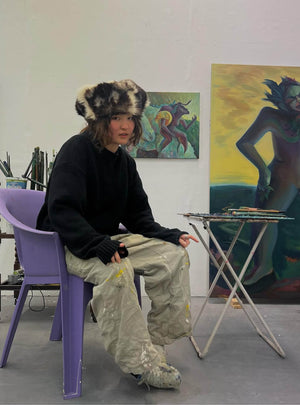
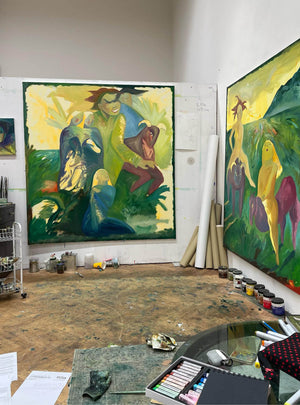
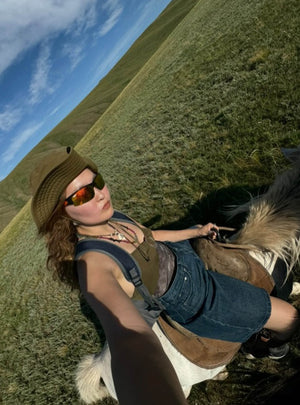
"I don't remember my first conscious painting, but somehow I always knew that I would become a painter." – Yuma Radne
Yuma Radne is a London-based painter whose work is shaped by her roots in Ulaan Ude, Buryad-Mongolia, and her path through Russia, Austria, and the United Kingdom. She began painting early, attending art school at the age of five and taking part in group exhibitions in Siberia by fourteen. At seventeen, she held her first solo show at the National Museum of Buryatia, then moved to Saint Petersburg to study monumental painting. A year later, she left the traditional academy system and continued her studies at the Academy of Fine Arts in Vienna, including an exchange year at the Slade School of Art in London.
Radne's work explores cultural memory, identity, and belonging. Through a sensitive and poetic figurative language, she draws on ancient Buryat traditions and her experience as part of an Asian diaspora in a post-Soviet society. Her paintings offer glimpses into overlooked histories and speak to both personal and collective experience. Her recent exhibitions include solo shows in France and Los Angeles, and she was featured in Artsy’s list of ten emerging painters born in the 2000s.
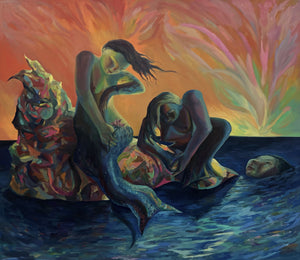
Yuma Radne’s process begins with fragments of memory, storytelling, and emotional sensation. Her paintings are built slowly, with careful layering and quiet attention. Each work starts with a sense or an image that lingers, often tied to her cultural background, dreams, or inherited symbols. As the painting develops, she balances control with openness, allowing space for intuition. Symbolism in her work is deeply personal. Objects and figures appear again and again, not as decoration, but as emotional markers. Her brushwork is both delicate and purposeful. Some areas remain soft and translucent while others are more defined and present. There is a sense of stillness throughout, an atmosphere that invites reflection. For Radne, painting is a way to hold on to connection and to give form to what might otherwise remain unspoken. It is a practice of care, a way of creating meaning from displacement, and a quiet celebration of identity.
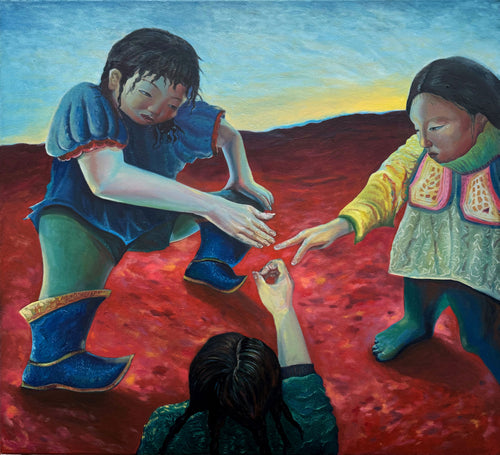
Well, paper, scissors - painting
Courtesy of the artist
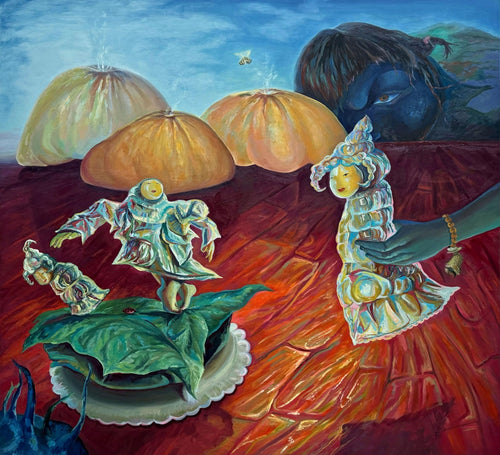
Don't play on the table - painting
Courtesy of the artist
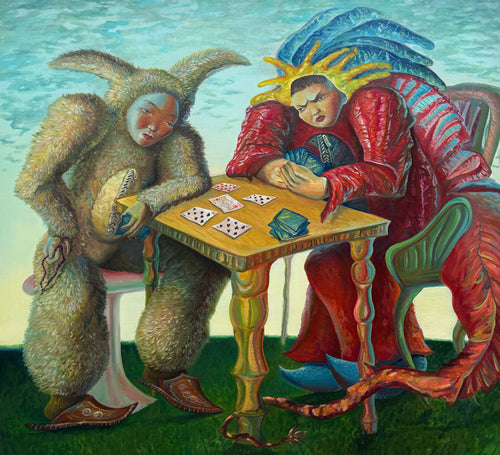
The card game - painting
Courtesy of the artist
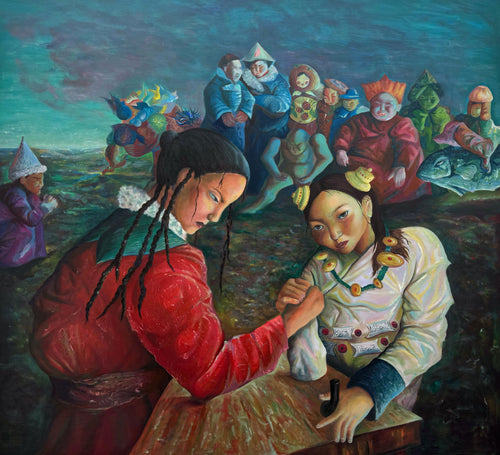
Armwrestling - painting
Courtesy of the artist